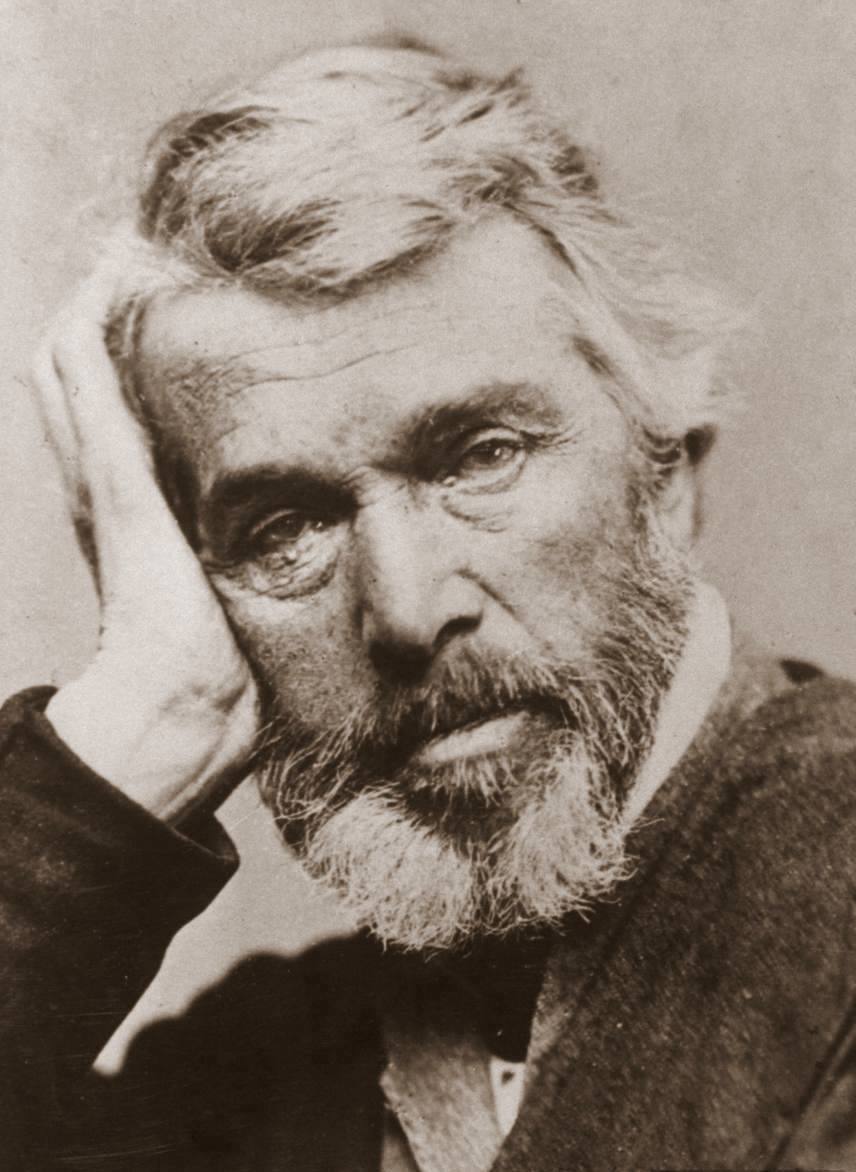Thomas Carlyle Quotes
“To this man life is already as earnest and awful, and beautiful and terrible, as death.”
1840s, Past and Present (1843)
“To a shower of gold most things are penetrable.”
Pt. I, Bk. III, ch. 7.
1830s, The French Revolution. A History (1837)
1880s, Reminiscences (1881)
1840s, Heroes and Hero-Worship (1840), The Hero as Prophet
1840s, Heroes and Hero-Worship (1840), The Hero as Prophet
1850s, Latter-Day Pamphlets (1850), The New Downing Street (April 15, 1850)
1880s, Reminiscences (1881)
On other stars
Attributed by John Burroughs on the first page of his 1920 book Accepting The Universe
Attributed by Carl Sagan at a November 20, 1972 symposium on "Life Beyond Earth and the Mind of Man", held at Boston University
[Berendzen, Richard, ed., Life Beyond Earth and the Mind of Man, 1973, NASA Scientific and Technical Information Office, Washington, DC, LCCN 73-600150]
"Life Beyond Earth and the Mind of Man 1975", Google Video, c. 0:02:50, 2006-09-11 http://video.google.com/videoplay?docid=-8949469271181885482&q=owner%3Anara+type%3Anasa, Edited version of symposium, released by National Archives, under Google Video partnership http://www.archives.gov/google/.
Attributed
Variant: A sad spectacle. If they be inhabited, what a scope for misery and folly. It they be not inhabited, what a waste of space.
1840s, Heroes and Hero-Worship (1840), The Hero as Prophet
1850s, Latter-Day Pamphlets (1850), Stump Orator (May 1, 1850)
Reminiscences (1881), referring to his father, James Carlyle.
Sometimes quoted as "Man was created to work, not to speculate, or feel, or dream; Every idle moment is treason". The second of those two clauses in fact comes from Thomas Arnold The Christian Life (1841), Lecture VI.
1880s
Bk. I, ch. 9.
1830s, Sartor Resartus (1833–1834)
“No sadder proof can be given by a man of his own littleness than disbelief in great men.”
1840s, Heroes and Hero-Worship (1840), The Hero as Divinity
1840s, Heroes and Hero-Worship (1840), The Hero as Priest
1850s, Latter-Day Pamphlets (1850), The Present Time (February 1, 1850)
1840s, Heroes and Hero-Worship (1840), The Hero as Prophet
“"The people may eat grass": hasty words, which fly abroad irrevocable—and will send back tidings.”
Pt. I, Bk. III, ch. 9.
1830s, The French Revolution. A History (1837)
“One life; a little gleam of Time between two Eternities; no second chance to us for evermore!”
1840s, Heroes and Hero-Worship (1840), The Hero as Man of Letters
1840s, Heroes and Hero-Worship (1840), The Hero as Prophet
1840s, Heroes and Hero-Worship (1840), The Hero as Prophet
“The three great elements of modern civilization, gunpowder, printing, and the Protestant religion.”
The State of German Literature (1827).
1820s, Critical and Miscellaneous Essays (1827–1855)
1840s, Heroes and Hero-Worship (1840), The Hero as Divinity
1860s, On The Choice Of Books (1866)
1840s, Heroes and Hero-Worship (1840), The Hero as Man of Letters
“Can there be a more horrible object in existence than an eloquent man not speaking the truth?”
Address as Lord Rector of Edinburgh University, (1866), reported in Bartlett's Familiar Quotations, 10th ed. (1919).
Attributed
“A mystic bond of brotherhood makes all men one.”
Essays, Goethe's Works.
1820s, Critical and Miscellaneous Essays (1827–1855)
1880s, Reminiscences (1881)
Why, really one might ask the same thing, in regard to every man proposed for whatsoever function; and consider it as the one inquiry needful: Are ye sure he's.
1840s, Heroes and Hero-Worship (1840), The Hero as Poet
1840s, Past and Present (1843)
“A great man shows his greatness by the way he treats little men.”
Attributed to Carlyle in Dale Carnegie's How to Win Friends And Influence People (1936), but this quotation is not found in Carlyle's known works. The first mention found in Google Books dates from 1908, where the Rev. John Timothy Stone https://en.wikipedia.org/wiki/John_Timothy_Stone is quoted as claiming: 'The greatest critics of this world have been appreciators. Carlyle said, "You can discover a great man, or see a great man, by the way he treats little men.'
The quotation is subsequently found in slightly different forms, mostly in religious publications: "A great man shows his greatness by manner in which he treats little men" (1913, unattributed); The exact wording of Carnegie's quote suggests that it was taken from Stone's 1930 publication.
Disputed
1880s, Reminiscences (1881)
“With what scientific stoicism he walks through the land of wonders, unwondering.”
1820s, Signs of the Times (1829)
1850s, Latter-Day Pamphlets (1850), Stump Orator (May 1, 1850)
1820s, Signs of the Times (1829)
1840s, Heroes and Hero-Worship (1840), The Hero as Poet
1840s, Heroes and Hero-Worship (1840), The Hero as Priest
“The great law of culture is: Let each become all that he was created capable of being.”
Richter.
1820s, Critical and Miscellaneous Essays (1827–1855)
1840s, Heroes and Hero-Worship (1840), The Hero as Man of Letters
1860s, On The Choice Of Books (1866)
1840s, Heroes and Hero-Worship (1840), The Hero as Poet
1840s, Heroes and Hero-Worship (1840), The Hero as Divinity
